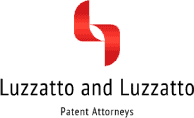


The number of domain name registrations in Israel is impressive: there are over 160,000 active domains ending with Israel’s national suffix ‘.il’. However, Israel has no specific legislation on the use of domain names and its trademark legislation – unlike that of the United States, for example – includes no special provisions on the use of another party’s trademark as part of a domain name.
The administration of ‘.il’ domain names is wholly the responsibility of the Israeli Internet Association (ISOC-IL), a private organization that acts as the registry operator. The ISOC-IL’s registration rules require a domain name holder to submit to the association’s jurisdiction. Thus, by applying for and registering a domain name, the applicant accepts the authority of the Israeli Dispute Resolution Panel of the ISOC-IL (IL-DRP) and agrees to its rules. Implemented to resolve disputes regarding the allocation of domain names, the IL-DRP offers a swift and inexpensive way of removing bad-faith domain name registrations.
Section 3 of the rules provides that disputes regarding the allocation of a domain name may be brought on the grounds that:
- The domain name is identical or confusingly similar to the complainant’s name (ie, a trademark, trade name, registered company name or legal entity registration).
- The complainant has rights in the name.
- The holder has no rights in the name; or
- The application for allocation of the domain name was made in bad faith or the domain name was used in bad faith.
This article briefly summarizes the extent to which Israeli dispute resolution procedures can provide relief for trademark owners, as well as examining the overall impact of this system, with particular emphasis on the interpretation and implementation of Section 3.
Same or confusingly similar
The IL-DRP has established that when considering whether a domain name is identical or confusingly similar to a trademark, no account is taken of suffixes such as ‘.il’ and ‘.co’, which panels have deemed to have no distinguishing characteristics in this context.
In the ‘snapple.co.il’ domain name dispute, which was initiated by the owner of the trademark SNAPPLE, a defence against confusion was put forward on the basis of a disclaimer found on the website. However, the IL-DRP decided that by the time a consumer had read the website disclaimer, the confusion and association would already have taken effect. Therefore, the panel ruled that a disclaimer cannot provide a defence against a claim of confusion.
A controversial provision of Section 3.1of the rules extends protection to registered company names, trade names and registered legal entity names. In spite of the clear terms of the rule, it remains unclear whether it is within the IL-DRP’s purview to make findings on a name other than a registered trademark. Panels often question whether it is within their authority to provide protection against unfair competition, whether on the basis of passing-off or other commercial torts. In the absence of a suitable mechanism for evidentiary review, a panel trying to assess a party’s reputation in Israel may lack a factual basis on which to reach a conclusion. As a result, different panellists have reached conflicting views. Some have claimed to have broad authority to apply substantive Israeli law to domain name disputes, whether on the basis of commercial torts, copyright law or unjust enrichment; whereas others insist that the panel’s adjudication role is limited solely to trademark-related causes.
Rights in the name
In a dispute over the domain name ‘jajah.co.il’, the registrant tried to justify its use of the complainant’s well-known trade name, Jajah, by adding to its website the slogans ‘ja jah!’ and ‘king of kings – lord of lords’, alluding to the Rastafarian saying ‘Jah Rastafari’ and the Rastafarian movement’s use of the word ‘Jahjah’ to refer to God. The panel held that the respondent had no rights in the name Jajah, as there was no real connection between the content of the website (which related to telecommunications) and Rastafarianism.
In the ‘axa.co.il’ domain name dispute, the registrant claimed that it was impossible to find other domain names with three letters in the ‘.co.il’ domain, and thus the name ‘axa’ was particularly important to it. However, the panel disagreed and ruled that seeking the registration of a three-letter domain name does not confer rights in the name itself. The registrants further tried to undermine the complainant’s rights in the domain name by alleging that as the domain name had been free and available for 10 years, during which time the complainant had not acquired it, the complainant had forfeited the rights in the name. The panel rejected this contention, maintaining that a party should not be compelled to acquire all possible variations on its mark in domain name strings in order to avoid forfeiting its rights or to prevent the allocation of such domain names to others.
Registration or use in bad faith Paragraph 4 of the rules sets out a non- exclusive list of factors that may be taken to demonstrate bad-faith allocation or use of a domain name:
- The holder continues to hold the domain name after termination of employment or work for hire, whereas the domain name should have been transferred to the employer or contracting party.
- The holder has sought allocation of the domain name primarily in order to disrupt a competitor’s business.
- The holder is holding the domain name primarily with a view to transferring it to either the complainant or a competitor of the complainant for an amount that exceeds the holder’s direct out-of-pocket expenses.
- The holder has requested allocation of the domain name in order to prevent the owner of a trademark from using the mark in a corresponding domain name, provided that there is evidence of a pattern of similar conduct.
- The holder is seeking to use the domain name to attract internet users to its website for commercial gain by creating a likelihood of confusion as to the origin of the website.
These rules generally provide a sufficient basis for trademark owners to preserve the integrity of their trademarks against minor fraudsters and cybersquatters. However, in two cases the IL- DRP found that none of these rules applied to the holder’s conduct. Since the rules are not exclusive, and as no guidelines are provided about the criteria to be applied in determining other relevant factors, the IL- DRP had to consider what further facts could provide a basis for a finding of bad faith on the part of the holder.
In a dispute over the domain name ‘thk.co.il’, the holder was accused of copying and translating into Hebrew certain content from the complainant’s website. The IL-DRP agreed that the holder’s behaviour had been in bad faith, although none of the prescribed rules was directly applicable. However, the panellists applied conflicting interpretations in their ruling. A majority argued that a copyright cause of action is within the scope of the IL-DRP for the limited but fundamental purpose of maintaining the integrity of the system. One panellist argued that the panel had no competence to consider copyright infringement. He nevertheless concurred with the majority decision, maintaining that the fact of copying and the associations created thereby indicated bad-faith conduct by the holder.
In a dispute regarding ‘emusic.co.il’, the registrant’s domain name did not link to a website or other online presence. The registrant could not be reached through its contact information and was not listed in the Company Register. Although previous panels had determined that registration alone may suffice to establish bad faith, on this occasion the panel decided that the mere registration of a trademark as a domain name, without further action, did not amount to commercial use of the trademark and therefore did not constitute trademark infringement or dilution. As such, the panel was not prepared to conclude that the holder had acted in bad faith. It ruled that it would be inappropriate to set a general rule that a holder’s lack of use constitutes bad faith, as no rule or procedure provides for such a result, and that the matter of use is “too multi-faceted to be left to the jurisprudential discretion of the panellist”.
A review of the IL-DRP’s decisions sadly shows that the question of whether it will be willing to reallocate an inactive domain name or a domain name that does not clearly break the rules will depend on the personal views of a majority of the panellists.
Comment
The IL-DRP plays a significant role in resolving domain name disputes in out-of- court proceedings. However, the source of its legal authority and the binding force of its decisions are both uncertain. Furthermore, with its frequent changes to its regulations – which go unpublished and unnoticed – and its inconsistent decisions, the IL-DRP is still in its infancy. Domain name registrants remain unclear on the types of dispute that are eligible for expedited resolution and on the types of use that are deemed to constitute use in bad faith.
As trademark law does not specifically address the circumstances in which trademarks are used on the Internet, new questions will continue to emerge. In the physical rather than the virtual world, trademarks may legitimately be used by multiple owners, provided that the consumer is unlikely to be confused as to the source or origin of the goods or services being offered.
However, does the manner in which domain names are used make a potential consumer more or less confused? Can national borders be applied to the use of trademarks on the World Wide Web? There is still a long way to go before clarity is achieved on these complex issues.

Relevant Articles
Regarding Patent Term Extensions in Israel
